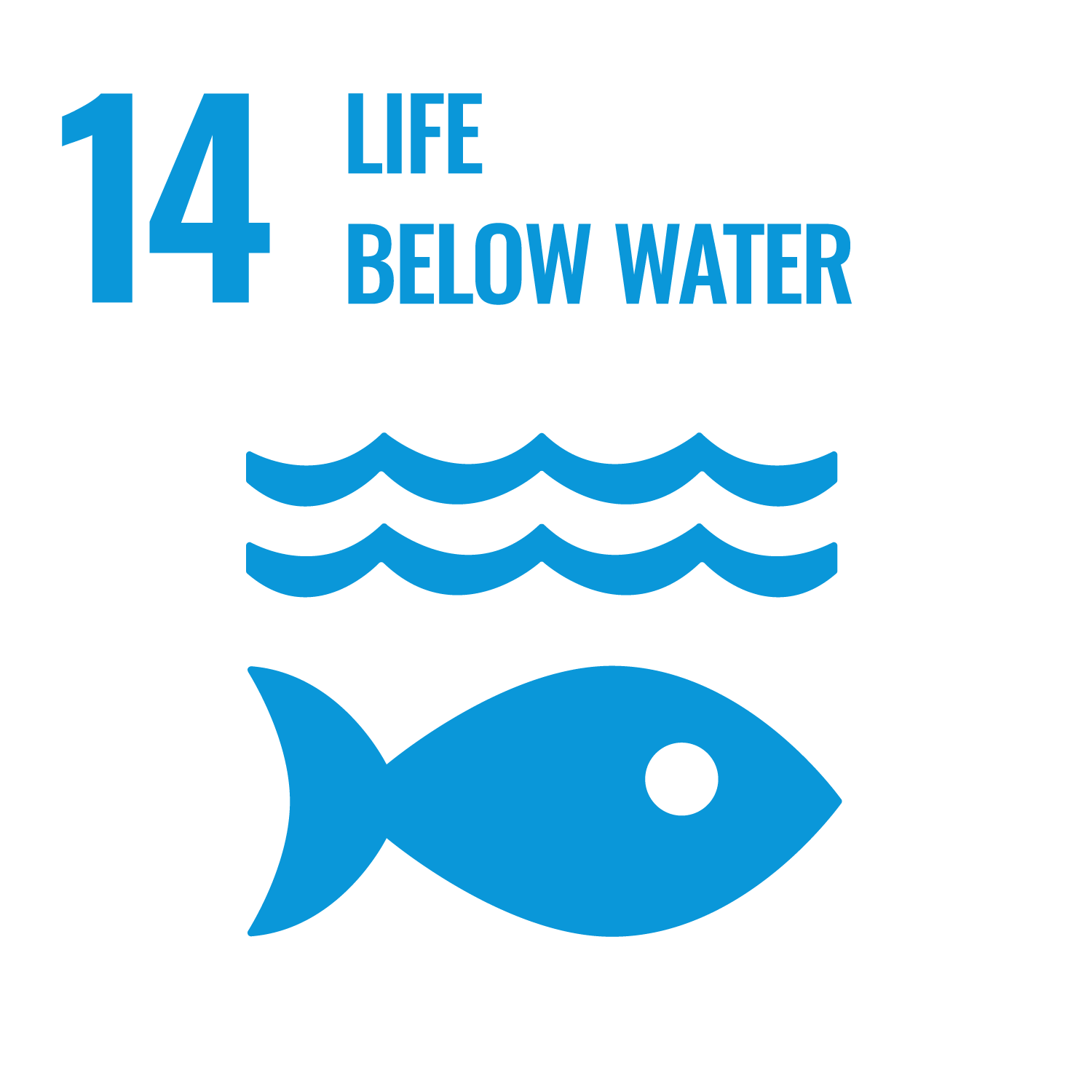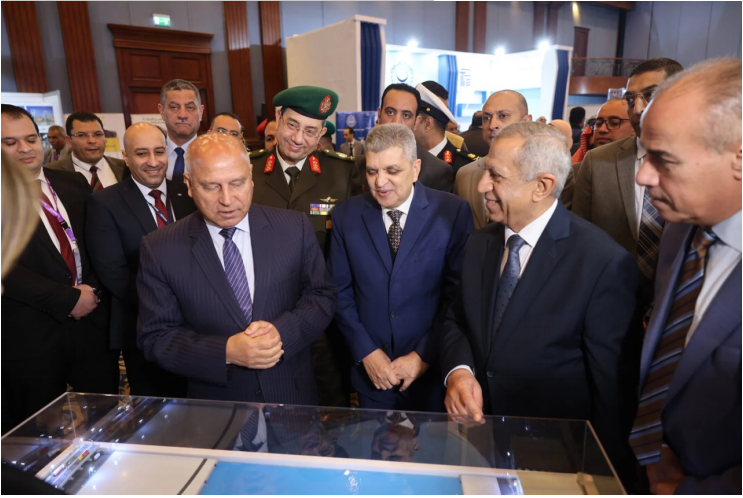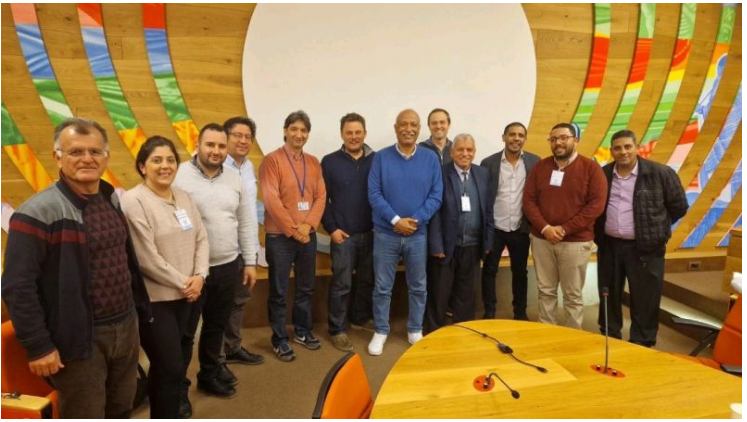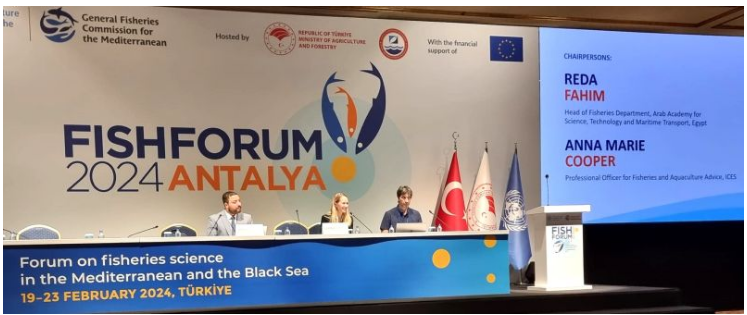 Goal 14. Life Below Water
Goal 14. Life Below Water
14.3.1 Conservation and Sustainable Utilization of the Oceans (events)
2023-2024
MARLOG 13. 04th March 2024
The Arab Academy for Science, Technology, and Maritime Transport organized the 13th International Maritime and Logistics Conference (MARLOG 2024). It took place on March 3, 2024, at Hilton Green Plaza Hotel in Alexandria, with the theme of 'Towards smart green blue infrastructure,' in collaboration with Suez Canal Economic Zone (SCZone), the International Association of Ports and Harbors (IAPH), MEDPorts Association, and the Union for the Mediterranean (UfM). The event also involved Valencia Port Foundation, Promotion and Commercial Studies of the Valencian Region (Valencia port Foundation), Antwerp/Flanders Port Training Center, Global Shipping Think Tank Alliance, and The International University of Logistics and Transport in Wrocław, Poland. The conference aims to bring together a diverse group of experts in ports, logistics, sustainability, and technology to discuss the latest developments and trends in sustainable infrastructure.

https://aast.edu/en/news/news-details.php?language=1&unit_id=483&news_id=486102024&event_type_id=1
College of Fisheries and Aquaculture Technology staff members participation in GFCM_FAO-UN working on Stock Assessment of the Round Sardinella in the Eastern Mediterranean, 2024
working on Stock Assessment of the Round Sardinella in the Eastern Mediterranean, a benchmark assessment for the species in Egypt (GSA 26) and Palestine (GSA 27) has been concluded, with the support of the GFCM_FAO-UN and all the experts in the region.

College of Fisheries and Aquaculture Technology staff member participation in Fish Forum, 2024, Antalya, Turky
The Forum on Fisheries Science in the Mediterranean and the Black Sea (Fish Forum), organized by the General Fisheries Commission for the Mediterranean (GFCM) of the Food and Agriculture Organization of the United Nations (FAO), is the most important scientific gathering dedicated to fisheries and related issues in the region. This year’s edition – the second - was hosted by Türkiye’s Ministry of Agriculture and Forestry and funded by the European Union.

2022-2023
AASTMT Recycling Program
Since 2019, AASTMT perceives the unfavorable effect of plastic waste, from creation through to removal. Plastic contamination can destructively affect Aquatic life, and the College is looking to diminish plastic use and wastage nearby. The accompanying activities have been received to advance this point with staff and understudies:
Single-use plastics in catering (food bundling, dispensable coffee cups, cutlery) have been supplanted with compostable catering supplies in all College food outlets to lessen plastic waste nearby.
Reusable cups are given to AASTMT staff during staff acceptances to decrease single-utilize dispensable cup wastage. These can likewise be bought from grounds retail outlets, and limits are offered to clients when reusable cups are used. Single-use cups cause an extra charge to urge a transition to reusable cups.
Conferencing and Occasions use reusable crystals to serve water, killing waste from recently used plastic-filtered water. The group also produces cleaned water nearby, further diminishing waste by evading the need to purchase indispensable water bundling. Water stations have been introduced all through the grounds for use by understudies and staff to support bottle reuse.
AASTMT intends to keep diminishing waste by investigating new items and administrations to help decrease plastic utilization and waste. To achieve this, AASTMT adopted a garbage segregation strategy and has distributed categorized trash bins on all its campuses; the following pictures are from the Abu-Qir Campus.
AASTMT Recycling Program on AASTMT webpage
The College Regularly Represents Egypt In The Working Groups On Stock Assessment (WGSA) Of Demersal Species (WGSAD) And Small-Pelagic Species (WGSASP) That Are Organized By The General Fisheries Commission For The Mediterranean (GFCM), Food And Agriculture Organization Of The United Nations
Since 2019, the recommendations of the WGSAs are being submitted to the Scientific Advisory Committee on Fisheries (SAC), which collects and assesses information on catches, fishing efforts, fleet capacity, and other data relevant to the conservation and management of fisheries.
Then, the SAC adopts the assessment of the status and trends of relevant populations of living marine resources, ecosystems, and fisheries-related human components, using the appropriate indicators and in relation to agreed biological and/or management reference points. In addition, A provision of independent advice made by the SAC to facilitate the adoption of recommendations concerning the sustainable management of fisheries and ecosystems at the regional and subregional levels, including relevant biological, environmental, social, and economic aspects, the ecosystem approach to fisheries, the impact of IUU fishing and the assessment of biological and ecological implications under different management scenario
MARLOG 12. 12th -14th March 2023
The world is facing continuous and different types of challenges, either natural crises such as climate change and other natural hazards that exacerbate climate change or manmade challenges such as conflicts between nations and countries, conflicts in interests between stakeholders, and the rapid changes in types and sizes of vessels and products and size of trading between countries. These challenges are growing and accelerating with time and driving the world to go through critical stages in the global economy in general and port and supply chains, which drives strongly to search for innovative and effective solutions to face the challenges and ensure the continuity of maritime transport and port productivity and
competitiveness.
The crises and challenges during the last few decades led to negative consequences on the global economy and particularly a huge impact on supply chains, logistics, and ports, which emphasize the importance of adopting integrated solutions and applying effective measures to adapt to such challenges and rational risk management. Furthermore, the challenges facing the world reflect the significance of implementing resilient strategies that ensure the ability to sustain logistics business and port services efficiency.
The mitigation of different crises can be achieved through different aspects and one of these aspects is modern technologies and promoting innovation. Relying on modern technologies and promoting innovation are the key drivers for achieving a resilient future for ports and the logistics industry. This requires synergies between decision-makers, academic researchers, stakeholders and the whole port and logistics community. It also requires effective communication, exchange of knowledge and best practices.
MARLOG 12 sheds light on the importance of innovation, modern technologies, and their role in a sustainable, resilient future for the port community and maritime industry.
Link 1: MARLOG 12 Introduction
Link2: MARLOG 12 Proceedings

MARLOG 11 20th - 22nd March 2022 on AASTMT webpage
MARLOG 11 20th - 22nd March 2022 on AASTMT webpage
The College Organized A Scientific Symposium and A Workshop on the Damages of Plastic In The “Be Prepared For Green” Initiative. 17th Jan 2022
The College Organized A Scientific Symposium and A Workshop on The Damages Of Plastic In The “Be Prepared For Green” Initiative. 17th Jan 2022 on AASTMT webpage
IAMU AGA21 26th -28th October 2021
The 21st AGA and IAMUC 21 were hosted by the Arab Academy for Science, Technology, and Maritime Transport (AASTMT), in the beautiful city of Alexandria, Egypt. The theme of the AGA21 IAMUC is “Innovation and Sustainability of Maritime Industry in the Scope of Blue Economy and Green Concept”.
The 21st Annual General Assembly (AGA 21) is the International Association of Maritime Universities (IAMU) annual meeting. The IAMU Conference (IAMUC), held annually as part of the AGA, brings together experts and official representatives of IAMU member universities from all over the world to discuss, exchange, and share recent progress and future trends in maritime education, training, research, and other matters within the scope of IAMU.
IAMU AGA21 26th -28th October 2021 on AGA21| AASTMT webpage
Participation of College Students in the Workshop and Competition of the Climate Protection Initiative
Students at the College of Fisheries and Aquaculture Technology won the first three places in the Climate Protection Initiative competition. 27-28 Feb. 20.



